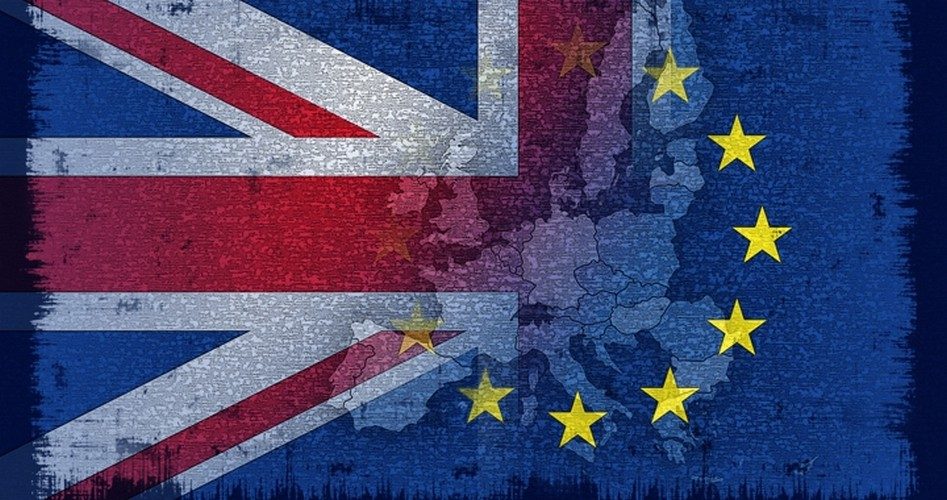
Oh, the joys of being in a globalist run multi-nation union.
In 2016, Great Britain voted to leave the bureaucratic and economic mess that is the European Union (EU). The people of the United Kingdom (UK) no longer wished to be subject to the whims of an unelected parliament in Brussels, which took great pains to micromanage Great Britain’s laws for the sake of the rest of Europe. The Brits gave the EU the old college try but, in the end, they wanted their sovereign nation back.
Fast forward to the present day and Great Britain is still trying to extricate themselves from the multi-national socialist nightmare that the European Union has become. The snag is the necessity of negotiating a deal for Great Britain to leave the EU and still remain on good terms with the union as trading partners. Conservative (Tory) Prime Minister Theresa May has forwarded a tepid version of Brexit, complete with many of the concessions demanded by the EU, such as strong economic ties, free movement of people across borders of member states, and even making budgetary contributions to the EU.
Not good enough, according to the EU. According to May, the EU — led by French President Emmanuel Macron — believes that, with enough pressure, Great Britain can be forced to back down completely, perhaps triggering a second Brexit referendum.
The British worry is that, in the end, the EU will offer a deal so bad that Great Britain will have no choice but to reject it. The UK’s options then are to simply stop participating in the EU, which could lead to poor relations between the UK and EU member states. Or, as Macron hopes, a no-deal might trigger a second Brexit referendum, which many in the EU believe would definitely produce a different result than the first one.
“No deal would be better than a bad deal,” said French Europe minister Nathalie Loiseau on a French radio show Wednesday. Loiseau later added that May is “running out of time” to make a deal with Brussels.
Great Britain currently has a deal on the table, which is known as the Chequers Plan. Some in May’s own Tory Party have criticized the plan as being far too Euro-friendly. When the plan was originally announced, a wave of Tory administrators in May’s cabinet resigned, including Foreign Secretary Boris Johnson and the chief Brexit negotiator David Davis. Despite pushback from the right-wing of her own party, May persevered and brought the Chequers Plan to a meeting of the EU in Salzburg, Austria last month.
But that was a disaster, too. Led by Macron, the EU declared the Chequers Plan unworkable. European Council President Donald Tusk said of the plan, “Everybody shared the view that while there are positive elements in the Chequers proposal, the suggested framework for economic cooperation will not work. Not least because it risks undermining the single market.”
Macron was more blunt. “It was a good and brave step by the prime minister [May]…. But we all agreed on this today, the proposals in their current state are not acceptable, especially on the economic side of it,” the French leader said, before adding, “The Chequers Plan cannot be take it or leave it.”
The only EU leader on Great Britain’s side is Hungary’s Viktor Orban, who faces his own troubles with the EU. Orban has said that Great Britain should not be “punished” in its attempt to leave the EU.
There are many sticking points but the main one for both sides remains the Irish Issue. Northern Ireland remains a part of Great Britain but the Republic of Ireland remains a part of the EU. Northern Ireland and the Republic of Ireland wish to keep the border between the two countries open and allow goods and services to cross the international borders between them uninterrupted, not just because of free trade but because of the fragile peace between Catholic and Protestant factions in the North.
The EU is basically demanding some sort of border, or at least border checks, between the two states because it believes that the common market of Europe must be protected from sub-standard goods entering Europe through Northern Ireland. They have offered a plan in which no such checks would be needed if Great Britain allowed Northern Ireland to follow all EU rules and regulations regarding trade but many in the UK believe such an agreement would, in effect, cede Northern Ireland to the EU.
May is in a no-win situation. The Chequers Plan has been widely condemned by elements in her own party, who call it a “soft Brexit,” and a betrayal of the vote in 2016. On the other hand, the EU calls Chequers “unacceptable.” The EU is playing the same game that Democrats recently played on Brett Kavanaugh — delay and obstruct.
The final date for the British exit from the EU is March 29 of next year.
Photo: id-work/DigitalVision Vectors/Getty Images



